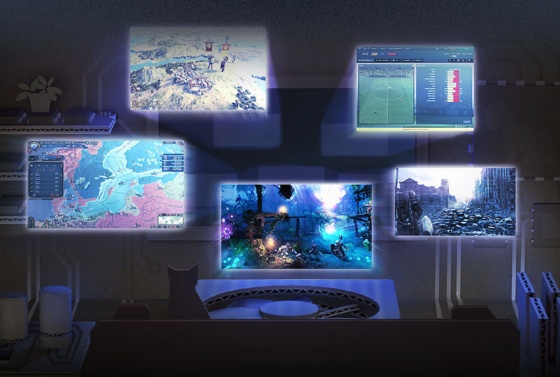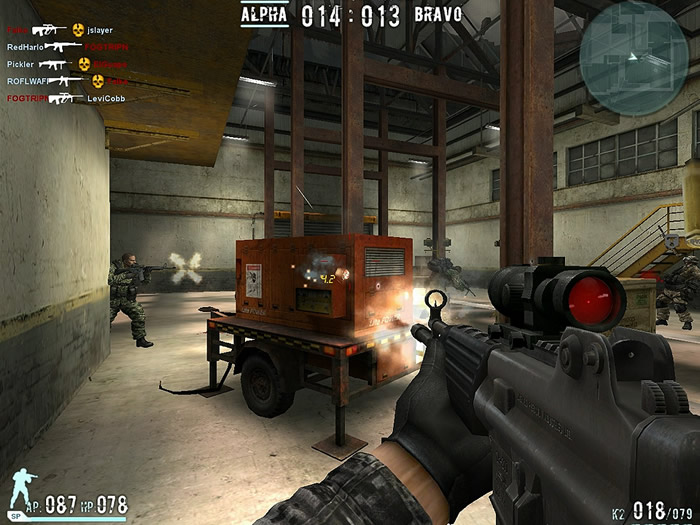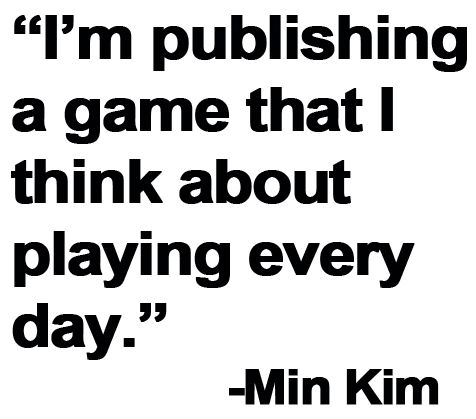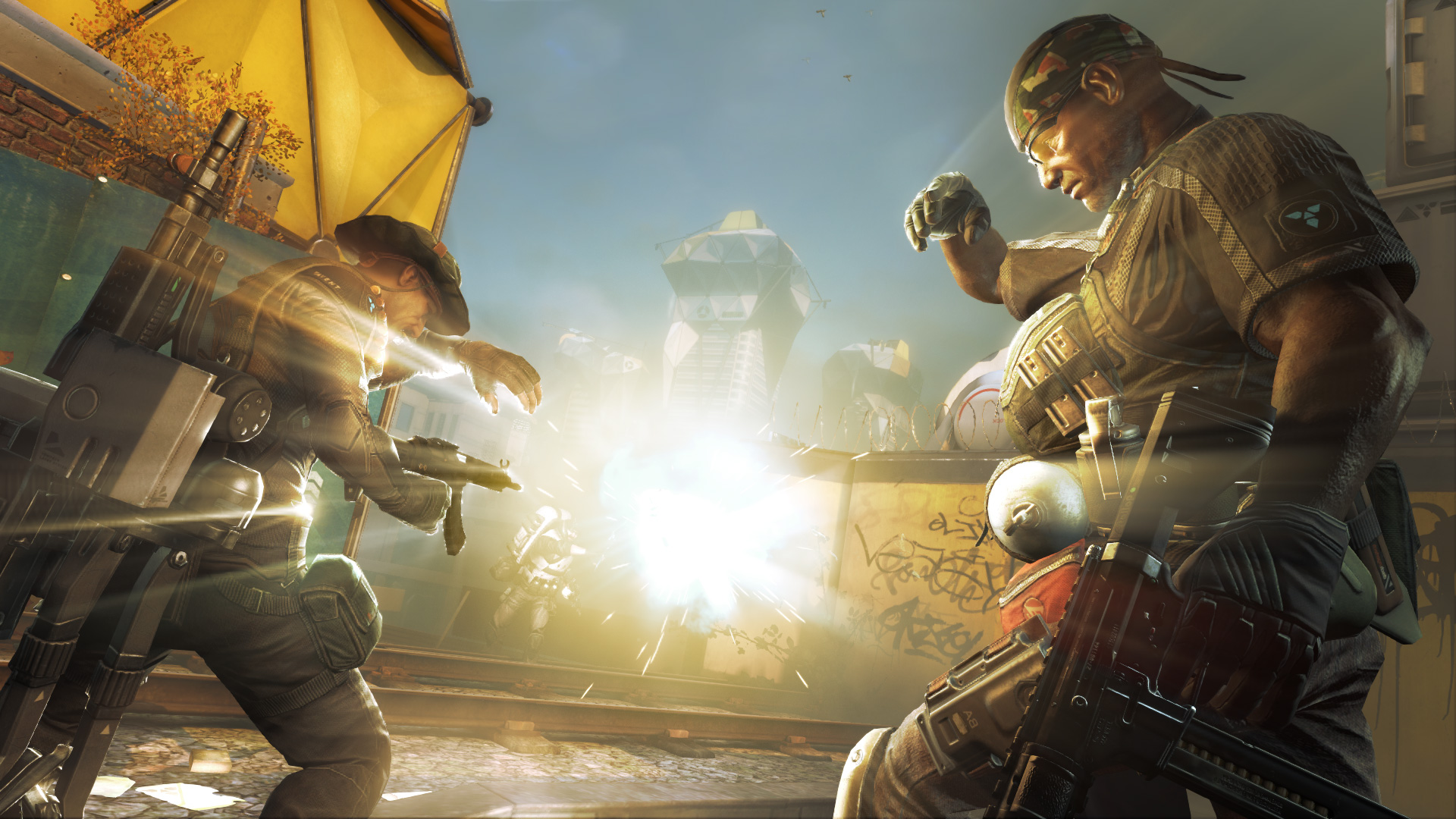Lightning Returns: Final Fantasy XIII will conclude the trilogy of games in the main Fabula Nova Crystallis series. Once again, Ligtning, the game’s primary protagonist will tryto save the world before it ends for good.
-
VPC: $8.35 ▲Value Per Click
-
VPCO: $0.00 ▼Value Per Comment
-
VPL: $0.00 ▲Value Per Like
-
VPM: $0.00 ▲Value Per 1k Impressions
-
VPS: $0.00 ▼Value Per Share
-
VPV: $0.00 ▼Value Per View
-
VPCO: $7.71 ▲Value Per Comment
-
VPL: $0.00 ▼Value Per Like
-
VPM: $0.00 ▲Value Per 1k Impressions
-
VPV: $0.00 ▲Value Per View
-
VPC: $2.86 ▲Value Per Click
-
VPCO: $0.00 ▲Value Per Comment
-
VPFAV: $0.00 ▼Value Per Favorite
-
VPL: $0.00 ▲Value Per Like
-
VPM: $0.00 ▲Value Per 1k Impressions
-
VPR: $0.00 ▲Value Per Reply
-
VPS: $4.08 ▲Value Per Share
-
VPV: $0.00 ▲Value Per View
-
VPC: $20.78 ▲Value Per Click
-
VPCO: $0.00 ▲Value Per Comment
-
VPL: $0.00 ▼Value Per Like
-
VPM: $0.00 ▼Value Per 1k Impressions
-
VPS: $0.00 ▲Value Per Share
-
VPV: $0.00 ▲Value Per View
Valve Unveils SteamOS
Valve, the company behind the online Steamworks game service as well as the publisher of such hit games as Portal and Half-Life, took a major step forward today in introducing a new service that would make it more convenient for people to play PC and Mac games on their televisions.
The company introduces the SteamOS, which is free of charge and promises “thousands of games, millions of users” across the service. The operating system will run games written expressly for it and the thousands of PC and Mac games you might have running on your home computer into your living room’s big screen TV.

The announcement states, “As we’ve been working on bringing Steam to the living room, we’ve come to the conclusion that the environment best suited to delivering value to customers is an operating system built around Steam itself. SteamOS combines the rock-solid architecture of Linux with a gaming experience built for the big screen. It will be available soon as a free stand-alone operating system for living room machines.”
Though Valve didn’t quite make clear what the “living room machines” in question are, there is a slight possibility the service could interact with next-gen consoles, like the PlayStation 4. Nothing is official yet, though. Valve has two more announcements coming up this week, so perhaps we’ll see some clarification on how the service will work with such devices. We may see the introduction of an actual SteamOS-powered console, and perhaps a long-awaited new game from Valve designed to work with the SteamOS.
Source: Steam
Twitter And CBS Team Up
Considering that CBS is America’s most watched network, and Twitter is easily one of the most popular sites out there, it seems like a logical pairing. Get ready for video in your Twitter feed!
The two companies announced a new deal yesterday at Advertising Week New York. As part of the deal, CBS and various brands within the network will be able to promote sports and news clips, as well as highlights from popular shows including CSI and 60 Minutes, among others. At least 40 shows from the programming stable will be included, possibly including the tech-savvy comedy The Big Bang Theory, which is about to enter its seventh season.
No word yet on when the program will kick off, but considering CBS’ fall schedule is rolling out starting this week, expect it sooner rather than later.
Source: GigaOm
New iPhones Smash Sales Records
Apple announced in an early morning press release that it has broken sales records with its two latest smartphones, the iPhone 5c and 5s, which were released last Friday nationwide to an awaiting audience. The devices managed to sell a record-breaking nine million units in just three days time, which shattered the previous record for the original iPhone 5 by approximately four million.
The phones, now available in the U.S. as well as overseas markets, have attracted a huge new audience, especially the 5s line, which is considered the most powerful smartphone in the mobile market to date.
“This is our best iPhone launch yet – more than nine million new iPhones sold – a new record for first weekend sales,” said Tim Cook, Apple’s CEO. “The demand for the new iPhones has been incredible, and while we’ve sold out of our initial supply of iPhone 5s, stores continue to receive new iPhone shipments regularly. We appreciate everyone’s patience and are working hard to build enough new iPhones for everyone.”
Source: Apple
Tencent Rolls Out WeChat Service
China’s giant game and technology firm Tencent is making a few moves to add to its growing stockpile of cash.
Tencent, whose recent stock market evaluation placed its worth at over $100 billion, is looking to provide new services for its 300 million users. Not only is it working to become a social network along the lines of Facebook and Twitter, but WeChat also plans celebrity wake-up calls and the ability to buy items through app-enabled vending machines.
A service allows users to pay 18 yuan ($2.94) a month to receive pre-recorded wake-up calls from celebrities, including Chinese actor Chen Kun, pictured above. Users will also have access to greetings, diary entries, photos and more. Of course, games are also part of WeChat, and one that’s expected to expand substantially.
In addition, users can download a special chat app to pay for bottled drinks, paying only a small fee of 1 yuan ($0.16) on top of the drink price. Hundreds of these machines are already available through Beijing’s massive subway stations.
Anyone interested in these services, however, will need to link their bank accounts to WeChat’s online payment system, Tenpay. There’s no word if they’re likely to see their way to the U.S. market, but it doesn’t look likely at the moment.
Source: Quartz
Wiping The ‘Surface’ Clean
In the hopes of rejuvenating its foothold in the tablet market, Microsoft has announced a pair of new Surface-oriented devices that will make their way to retail starting next month.
The first device is the Surface Pro 2, which comes with an improvement to battery life, as well as a dual-angle kickstand for working in your lap or on a table. It also comes with a new Power Cover, which includes a built-in extended battery in case you’re running low on juice. The battery life now lasts 10 hours, meaning you can use it throughout your work day with ease. A secondary docking station will also be available, enabling its use as a sit-down laptop at your desk. It also comes with a number of USB ports, as well as an Ethernet port and 3.5mm audio in and out.
The second tablet, the Surface 2 (replacing the Surface RT), is equally impressive, with a lighter and thinner build than the original device. It has a longer battery life as well, and comes with a Tegra 4 chip set featuring 72 graphics cores, twice the WiFi speed of the original Surface, a USB 3.0 port and a full HD screen. It also comes with a built-in 3.5MP camera front-facing camera (and a 5 megapixel rear-facing camera), and instant Skype connection.
Purchasers of these devices will have access to a free Skype International subscription for calls, as well as access to 200 GB on the cloud storage service SkyDrive for approximately two years’ time.
The Surface Pro 2 will come in 64GB and 128GB configuration while the Surface 2 will come with 256GB and 512GB configurations. Pricing is set to start at $449 for the Surface 2 and $899 for the Surface Pro 2, plus additional pricing for accessories. They will release on October 22nd.
Source: TechCrunch
Sculpting With Light
Benjamin Muzzin has just created a diploma project for his bachelor degree at ECAL that could very well change the way you look at sculptures.

He’s developed a new kinetic light sculpture build called Full Turn, which utilizes two flat screen monitors that are placed back-to-back and spun around at extremely high speeds. As a result, three-dimensional light forms are created, and manage to hover in the air without the need of additional equipment.

Muzzin said on Full Turn, “With this project I wanted to explore the notion of the third dimension, with the desire to try to get out of the usual frame of a flat screen. For this, my work mainly consisted in exploring and experimenting a different device for displaying images, trying to give animations volume in space. The resulting machine works with the rotation of two screens placed back to back, creating a three-dimensional animated sequence that can be seen at 360 degrees. Due to the persistence of vision, the shapes that appear on the screen turn into kinetic light sculptures.”
You can view the video above to see the entire sequence.
Source: ThisIsColossal.com
Nexon Western Expansion Hinges On ‘Extraction’
Those who know Nexon recognize it as one of the true pioneers of bringing free-to-play to the West with games like Maple Story and Sudden Attack. Now that the category has a foothold in the US and Europe, the Korean game company is making moves to grow its share of the market by investing in Western development. That’s what its partnership with Splash Damage to publish free-to-play shooter Extraction represents. Despite its success in free-to-play and even the shooter genre, Nexon says it sees challenges ahead with convincing some in the free shooter community, and especially diehard fans of Splash Damage’s previous games, that this marriage is going to birth the next alpha dog of the genre.
 Min Kim, CEO of Nexon America
Min Kim, CEO of Nexon AmericaWe had a chance to talk with Nexon America CEO Min Kim shortly after Extraction was unveiled, and he voiced a surprising early reaction to the announcement.
“I can be completely honest and say that players are probably concerned about the partnership between Nexon and Splash Damage,” Kim said. “Part of it just has to do with the fact that Splash Damage has a partner. If Splash Damage was running the game entirely by themselves then their inner circle of players would feel that Splash Damage is making all the calls, they don’t have to water down any of their decisions and make mistakes that way. When we announced this partnership there was a little bit of that.”
Maple Story is the game that helped put Nexon on the map here, and for many it was their first taste of the free-to-play model. The game isn’t exactly the kind of freemium fare that Western gamers have since embraced. That might be where some of the concern lies in Splash Damage’s player community. The West is where Riot’s League of Legends and Wargaming’s World of Tanks are killing it in free-to-play. Both of those games are intensely hardcore experiences that completely contrast the cutesy, 2D side-scrolling MMO that is Maple Story. Splash Damage itself is best known for a string of hardcore multiplayer shooters, namely Enemy Territory: Quake Wars, which helped make a name for the studio, and the 2011 console-PC shooter Brink.
Nexon has had success with shooters Sudden Attack and Combat Arms. Kim thinks the players voicing their disgruntlement about how it’s publishing Extraction are the kind of people who overlook its entries as very ‘Asian’ in their treatment of the genre.
“I think there’s also this stigma of Asian free-to-play games being pay to win,” Kim said. “Whether they’ve played our games or other Asian games or not, that’s just a stigma that’s out there, so that’s another concern players have. The way I look at it is, rather than think about all the games that are out there, really thinking about what this partnership means, and when you say Nexon and Splash Damage are working on this game, this game is purely focused on North America and Europe. That’s basically how it’s been designed.”
He added: “When you look at Asian games, regardless of what their payment models is, or what their monetization scheme is, or how they design the game, that’s being designed for multiple markets — you have the Chinese market, the Korean market, the North American market. And you have the development team that needs to meet the needs of all of those markets. They can’t actually tailor the experience exactly towards any particular market, and it’s always going to lean towards the market where it originated.”
 Combat Arms screen shot
Combat Arms screen shotThose who seem unhappy about Nexon’s role in Extraction also seem to be overlooking the fact that both of its shooters have managed to maintain loyal players in the face of an increasingly competitive and challenging free-to-play market. Nexon’s Sudden Attack is among the longest running free shooters, first released back in 2004. Combat Arms came out in 2008, and by all accounts it is outperforming a string of high-profile entries that hit the category since. While big name shooters like Blacklight Retribution, Firefall and Tribes Ascend have tried to storm the market, they’ve experienced mixed fortunes. Combat Arms’ web site says it has 10 million registered players worldwide. By comparison, Blacklight Retribution and Tribes Ascend last announced about a million players each. Tribes developer Hi-Rez Studios recently said the financial performance of its shooter is “break even at best” since it released about a year and a half ago.
Still, fits and starts for the category aside, Nexon sees future growth in free-to-play coming from products developed by Western game makers for Western game players. In August, the company invested in California-based Rumble Entertainment, creator of the popular free-to-play game King’s Road. Kim says Extraction is another stepping stone in the same strategy.

“I’ve talked about it publicly since we’ve come out here – that for every market that Nexon self-developed, it has been Korean developed games because that’s where most of our development has been, and because we were pioneers of free-to-play,” he said. “It’s been those early entries that have proven what free-to-play can do, but we’ve always felt domestic development allows developers to basically focus on what the player needs are for that specific market and optimize for over there. You see the guys at Riot, you see the Valve guys, and they’re basically creating services that Western gamers are looking for.”
“With Splash Damage I finally found a developer that sees eye to eye with me, has the same community vision, and it’s just basically creating a really awesome quality game that we believe in. I’ve basically been looking for this since 2005, so I’m pretty stoked.”
Extraction is looking to set itself apart with its character-classes and squad-based multiplayer formula, leveraging the pedigree Splash Damage is known for. Kim thinks that puts the game in contrast with other shooters out there.
“If you put your hands on the game, it’s a lot different than what’s out there in the market right now. I think that’s really important that it feels unique. Team-based multiplayer games have been out for a while but the market’s been really moving towards kill-streak based, highly lethal type shooters. The refreshing thing about [this] game is that once you put your hands on it, you realize it’s not just about that, it’s about how you coordinate with your team, and the mastery of the different roles that you have within the game.”
 Extraction
ExtractionNexon and Splash Damage recently announced that Extraction is ready to move out of alpha and into closed beta in October. There’s little Kim would say about what’s ahead for marketing the game, other than pleasing what the game makers call their “inner circle” of players with a quality, balanced shooter. From there, it’ll be all about happy players recruiting their friends.
“[The developers] are doing a really good job of listening to their feedback, and they’re also looking at their Echo data, which is their proprietary analytic and telemetry system to make sure that they can get a fair and balanced playing field. And then what we’re doing is adding a bunch of different roles of characters into the game to see how those play out, seeing if that’s balanced. That’s what we’re focused on right now is making a really fun game, because if we have that we’re pretty sure we can get people to come play this game.”
Kim refused to delve into even the most rudimentary discussion of how Extraction is going to monetize.
“Here’s the funny thing, when people say Splash Damage is working with Nexon, the first thing they ask is, ‘what items will you sell ‘. And I always say I don’t know. It really depends on the DNA of that particular game and the relationship that you want to have with the consumer and the vision for that service or product. With Extraction, we actually haven’t had conversations about what we’re going to monetize, we haven’t even talked about the shop, because the first thing you have to do is get the game down. And once the DNA of the game is set then we can talk about how to deliver more value through monetization.”
As for that post-announcement grumbling, Kim seemed to want to stress that even if the gamer community knows Nexon for only one type of game, that doesn’t define who he is and what he can bring to helping make Extraction successful.
“I’m really excited because I’ve been playing shooters for a really long time, that’s been my youth. It’s always been multi-player shooters. It’s funny I talked to Paul [Wedgwood] over at Splash Damage — Paul’s the CEO of Splash Damage — and he was playing the original Quake Team Fortress, and I played the shit out of that. Those are the types of games I’ve always liked playing, and basically I’m publishing a game that I think about playing every day.”
Creating Mobile Game Communities
Communities have become a powerful tool for enhancing and promoting game experiences for many console and PC games. Deep, immersive games that engage players are a rich source of conversation, with players looking to exchange tips, hints, thoughts and create clans or guilds for increased multiplayer fun. Mobile games haven’t generally had communities on the same scale of size and engagement, both because the most popular mobile games so far have been casual and because it’s been harder to communicate with other gamers across platforms and games.
Red Robot hopes to change that with its new mobile app F!RST. The [a]list daily spoke with Mike Ouye, the co-founder and CEO Red Robot; Pete Hawley, co-founder, and chief product officer; and John Davison, the GM of content & publishing, F!RST. “F!RST is a community app for gamers that our early users are describing as ‘like Reddit and IRC had a baby’,” said Davison. “It allows people to post topics and then chat about them using an interface very much like WhatsApp or other messaging apps. It’s all live chat, and lets you post links and media as well as location data (if you want) into the chat.”
Davison’s background and his previous role as VP of CBS Interactive helped give him perspective on why a new paradigm was needed to connect gamers and game information. “A lot of the conventional media wasn’t necessarily serving what a majority of gamers wanted any more,” Davison said. “Gamers themselves were actually shaping a lot of the story and the conversation through YouTube and Twitch, and there’s a lot of good stuff coming out of communities. F!RST is about capturing all of that with an application and a community that’s mobile first.”
Red Robot launched the development of F!RST after a disappointing experience with the community of their first game.“When we launched Life Is Crime, our first game, a couple of years ago, it got quite a large audience,” recounted Hawley. “It got very frustrating for us because our in-game chat wasn’t very good – in fact it was non-existent to begin with. As a developer it was very frustrating for us, because our audience was on mobile but they were fragmenting themselves all over the place. They just wanted to hang out.”
The company then built a product that would not only help connect players of Red Robot’s games, but would serve as a general tool for all developers to use for that purpose. The launch of F!RST coincides with the launch of Red Robot’s latest game, Friendly Fire, which uses F!RST. “We built an SDK and you can connect the chat lobbies,” said Hawley. “Players in F!RST can jump into the Friendly Fire chat channels and chat with the people in the game, and vice versa. It allows developers to throw in quite a lot of rich content. It goes beyond just chit-chat – it goes to video and pictures and comments and tips and tutorials. So we’ve got this live, rich stream of content and in the future we’re going to give that to developers. The developer of a game can feed that channel with cool exclusive video and content for players.”
F!RST is not only a useful tool for gamers, it’s also designed to be a big help for game developers. “The real thing we’re trying to solve for developers, the big problem for mobile that everyone’s trying to solve is, how to re-engage your audience,” said Ouye. “We found that chat is a great way to do that. What we’re really trying to do is allow developers to own their own audience and create their own network between their own games, and to make their games more social.”
The hope is to move beyond the rather basic marketing techniques used now for most mobile games. “Your marketing strategy is basically to get featured, and if that doesn’t happen it makes life very difficult,” said Hawley. “I’ve spent twenty years making games for various platforms. Audience is everything – it’s a bit of a cliché, but when you live it every day it makes life a lot easier.”
Hawley described the motivations behind the creation of F!RST. “One of the biggest frustrations is a lot of the stores are still driven by the top ten, and then that drives the downloads. That led to all sorts of bad behavior were gaming installs to gain position,” Hawley said. “If you look at the charts generally it’s super frustrating, it doesn’t allow you to find stuff. An algorithm is one thing, conversation among like-minded people is another.”
In order to make F!RST as useful as possible, Red Robot focused on making it easy to use, rich in content – and easy to find what you’re looking for. “One of the reasons we made it live, dynamic conversations is because things change very quickly,” said Hawley. “We do have algorithms on our popular feed that reflect that, the things that people are most excited about because they upvote it or they’re talking about it more than anything else. At the same time, we have this concept of subscribing. Whether it’s a game or a person, you subscribe to it and then it will dynamically update. For example, if you subscribe to Candy Crush, you have a Candy Crush channel and every time someone hashtags their post with #candycrush that channel will dynamically update. So it’s got all the new conversations and the new content that’s posted, but it does persist. If you want to browse through or search you can, we have some pretty powerful search tools.”
Ouye put the whole effort into perspective. “As developers, one of the hardest things to do is just communicate with your own audience because all you have is push notifications. Trying to build a mobile first community to bridge that gap is an important piece of the puzzle for us,” Ouye explained. You can even connect through other networks, and post your chat sessions to share with friends.
How will F!RST find its audience among gamers and developers “Short term, the goal for the effort is to really build audience. That’s going to be through multiple efforts,” said Ouye. “Working with the platforms, doing marketing and PR, working with developers. On the business side, we would really like to become a distribution point for games. The one thing Pete and I have always talked about, something that’s ripe for disruption, is how people find games. Right now a lot of it is chart-based, but we have some opinions on how it could be better. We want to make it more social. We’re trying to improve and disrupt the app economy of discovery and distribution for games.”
F!RST has been released for Android now, and will be on iOS in a couple of weeks when Friendly Fire launches for iOS. Will this become a widespread way for gamers to connect and share Only time will tell, but it’s certainly an important area for the future of mobile gaming to focus on.
Racing At The Speed Of Film
By hooking up a camera into the engine block of a McLaren 12C supercar, this video was able to simulate a computer generated image using 680 frames printed on aluminum panels.
